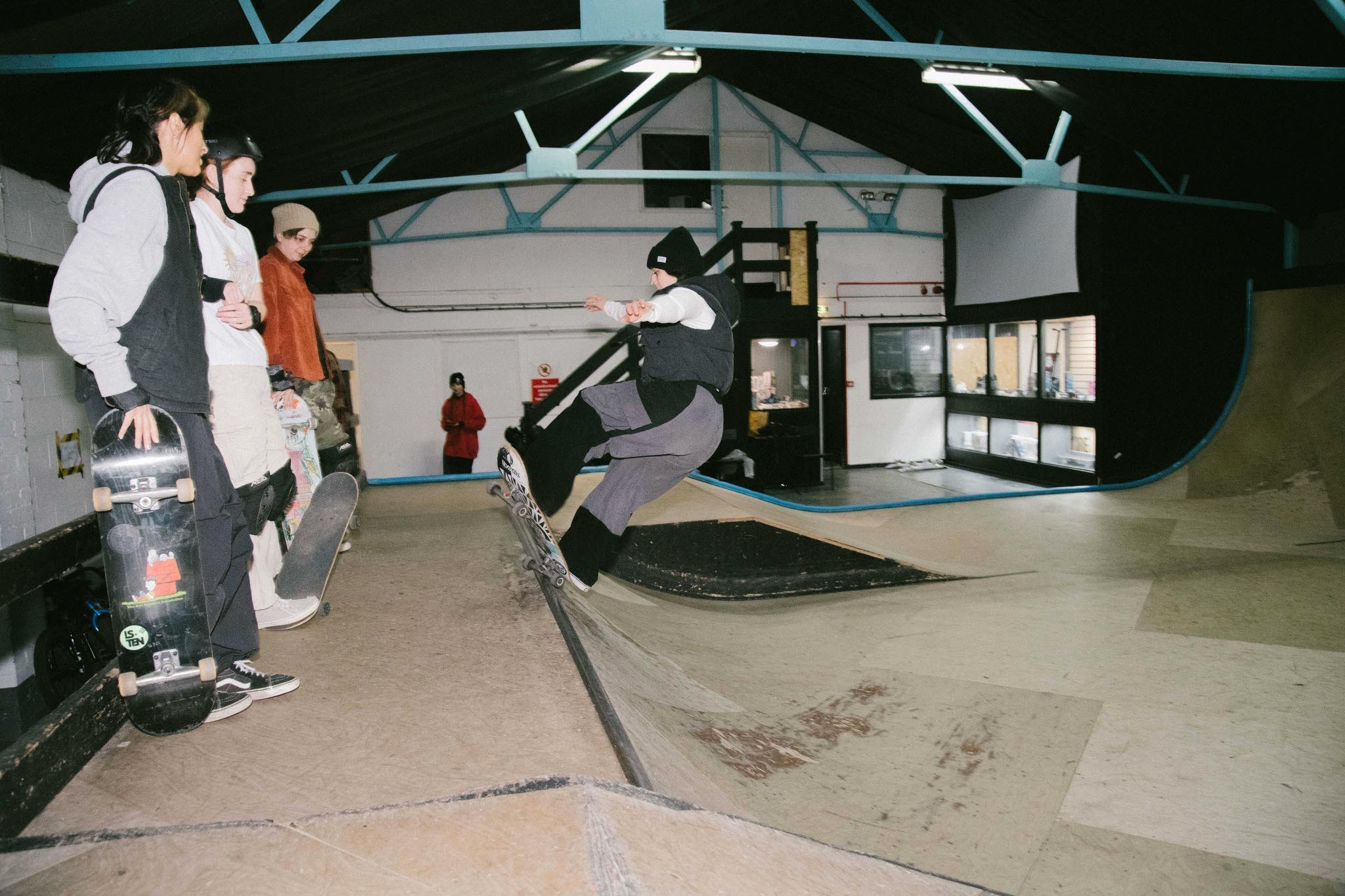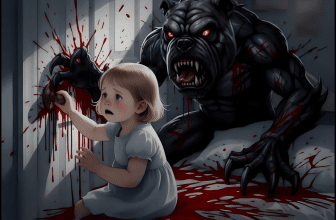

It took you two years to document these skate communities and collectives around the northwest. What was it that led you to start this project?
I came across the first skate collective called Cumbria Cvven, and their tagline was ‘skate like a lass’. When I first met one of the co-founders, Lily, we were both featured in a local Cumbrian zine as creative makers and practitioners. We met up quite a few times and she invited me to this skate jam. Through lack of funding to rent an indoor spot, they’d occupied the top of this multi-story car park, and they created this community. People had built DIY skate ramps and it was bustling. You turned around the corner and it was full of skaters of all abilities and it was super inclusive. There was music, snacks, family, friends, and I just thought: “This is beautiful.” And so my research began because these communities and third spaces are so important, yet overlooked.
Why the northwest? And why skating?
I tried to stick to non-city centric spaces and communities, because there’s a benefit of having a big population, whereas smaller communities really have to fight to be self-organised and stay on top of things. My own experience; I’m from a big family. I’ve got three brothers, and they skated. I grew up devouring skate culture zines, magazines and VHS tapes. I played Tony Hawk and was always Elissa Steamer. I had a crack at skating as a teenager with my best friend Hannah – I wasn’t very good. The older I got, the less I saw of people like me skating; women specifically. Historically, the documentation of female or marginalised genders being involved in the sport isn’t there. I can never rewrite history, but it was my attempt to profile, document and archive that it is changing.
How deep did you go into the research?
I went in deep – I was reading about the social cohesion of concrete within skateboarding. I visited so many different skate parks in and around the northwest. Even doing this project with my friend Femke Campbell, who designed the zine, it was very much a collaboration of research into historical zine archives and heritage skate brand campaigns. I looked at ’80s Californian zines by a skate collective, which was amazing source material. We had this reference that I found in a museum, which was a skateboard from 1960, and the typeface on it is a direct reference to the one we used for the zine. As an image maker, there’s so much research I do with every project. You need to be responsible to know where your work fits in the world, as well as just making.
How do these collectives compare to traditional skateboarding culture?
Two of the skateboarding collectives that were really involved in the project were Empress skateboarding, who are based in Preston, and Slag collective, who are based in Blackpool. The brilliant thing about these collectives is that you have an opportunity to start without any eyes judging you, which is important. A lot of the skaters had shared with me experiences of intimidation and harassment at skate parks. The etymology of the Slag collective’s name is to repurpose a name which they were called, which was “skate park slags”. So they created the skate collective, which essentially challenges gender hierarchies, and is making something positive out of a negative experience. For some of the collective events, you’re not necessarily trying to achieve something in a few hours. You might have just had a conversation with one person. It’s just having that space held. Skating in a welcoming community changes everything. Feeling safe changes everything.
When I read the zine, one of the stories that stuck with me was a mother-daughter duo who were learning to skate together. It was really powerful. What stuck with you from the personal stories you heard?
I think it’s how much we need each other as a community. The fearlessness of being young, bouncy and resilient is something that we can all learn from. The older you get, the more you fear. When I asked people to explain their experience of how skateboarding felt, freedom was the biggest thing. Within skateboarding, you have to fail – it’s part of the process – but getting back up again is such an enormous lesson. Also, just being around people and having a neutral space. To have that locally, to have something connected with people that isn’t just work or college or school is really important.






